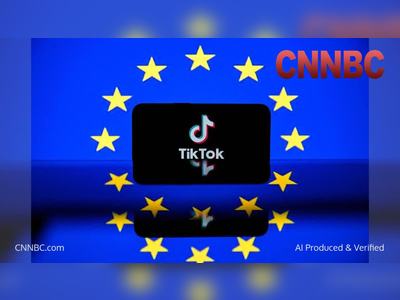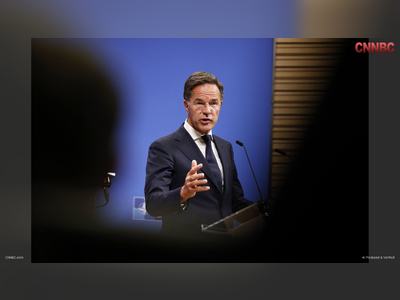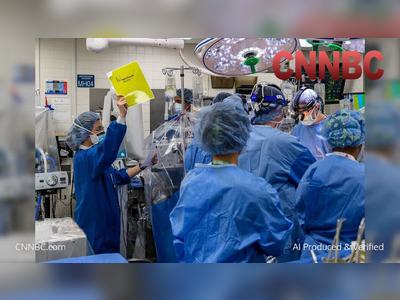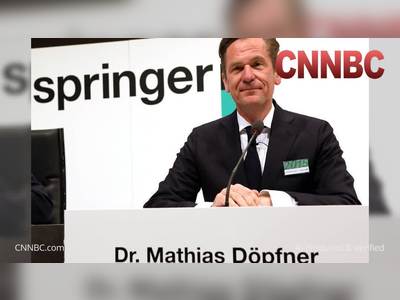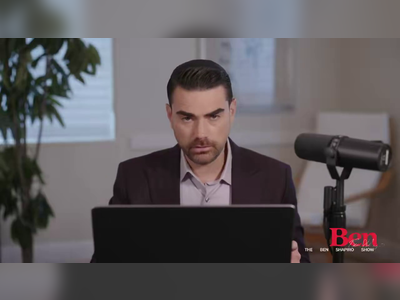Biden Weighs Dropping Cuba from Terrorism Sponsor List Following Hostage Deal
A possible policy change designed to improve U.S.-Cuba relations ignites discussions about diplomacy, security, and human rights.
The Biden administration has indicated its plan to remove Cuba from the U.S. list of state sponsors of terrorism, as part of a comprehensive agreement aimed at freeing political prisoners and reducing diplomatic tensions.
This move, a notable shift from the Trump-era policy, has stirred discussions about its impact on bilateral relations, human rights, and U.S. foreign policy.
Historical Context: Cuba’s Designation Cuba has been intermittently placed on the U.S. list of state sponsors of terrorism since 1982. This designation, which also includes countries such as North Korea, Syria, and Iran, signifies that these nations have 'repeatedly provided support for acts of international terrorism.' This label enforces economic sanctions, including limits on U.S. financial aid, arms exports, and foreign investment.
In 2015, then-President Barack Obama removed Cuba from the list as part of a broader effort to normalize relations.
However, in 2021, outgoing President Donald Trump reinstated the designation, citing Cuba’s support for Venezuelan leader Nicolás Maduro and its alleged role in regional instability.
At the time, Cuba denounced the action as 'opportunistic' and 'cynical,' criticizing it as a political strategy.
Biden’s Policy Shift
According to a White House official, a recent assessment found 'no information' to justify Cuba’s continued inclusion on the terrorism list.
The decision to reevaluate Cuba’s status coincides with a larger agreement brokered by the Catholic Church, which involves the release of a 'significant' number of political prisoners detained during the 2021 anti-government protests in Cuba.
Cuba has cautiously welcomed this development, with its Foreign Ministry calling it a 'step in the right direction' but stressing its limited effect.
'This decision ends certain coercive measures that, along with many others, have severely damaged the Cuban economy, with serious repercussions for the population,' the ministry stated.
The Economic and Diplomatic Implications
The potential removal of Cuba from the terrorism list could pave the way for enhanced economic and diplomatic relations between the two nations.
The designation has deterred major banks and foreign investors from engaging with Cuba, worsening the island’s economic difficulties.
By lifting financial restrictions imposed during the Trump administration, the Biden administration aims to alleviate some of these challenges while promoting dialogue on other contentious issues.
Key measures under consideration include:
Easing financial restrictions on specific Cuban nationals.
Suspending the ability of U.S. citizens to file claims over properties confiscated in Cuba.
Encouraging foreign investment in Cuba’s struggling economy.
However, these proposed changes face strong opposition from Republican lawmakers, including Senator Marco Rubio, a long-time advocate for maintaining sanctions on Cuba.
Rubio, whose family escaped Cuba before Fidel Castro’s communist revolution, has argued that easing restrictions would empower the Cuban government without ensuring significant reforms.
Human Rights Concerns and Regional Stability
The release of political prisoners is a crucial element of the agreement.
Many detainees were arrested during widespread protests in 2021, driven by economic hardships and governmental mismanagement.
The protests represented one of the largest expressions of dissent in Cuba’s recent history, drawing global scrutiny to the country’s human rights record.
While the agreement could improve conditions for some prisoners, critics argue that broader systemic issues remain unresolved.
'The release of prisoners is a positive step, but it doesn’t change the underlying reality of repression and lack of freedoms in Cuba,' said a representative from Human Rights Watch.
Furthermore, the agreement affects U.S.-Cuba relations within the wider geopolitical context.
Cuba’s ties with nations like Venezuela, Russia, and China remain contentious points.
Critics worry that removing Cuba from the terrorism list could weaken U.S. leverage in addressing these alliances and reducing regional instability.
Political Risks and Future Uncertainty
The potential policy shift occurs as the Biden administration faces increasing pressure to balance diplomatic engagement with domestic political considerations.
Republican leaders have pledged to oppose any action perceived as softening the U.S. stance on Cuba, framing the decision as yielding to a repressive regime.
Meanwhile, uncertainty overshadows the future of U.S.-Cuba relations.
If Donald Trump returns to office in 2025, as some predict, he may seek to reinstate Cuba’s designation and undo any progress made under Biden.
Similarly, the stance of future administrations will likely determine the trajectory of bilateral ties.
For its part, the Cuban government remains cautiously optimistic.
While recognizing the symbolic and practical benefits of being removed from the terrorism list, officials have emphasized the need for broader economic reforms and an end to the U.S. trade embargo to achieve significant progress.
This move, a notable shift from the Trump-era policy, has stirred discussions about its impact on bilateral relations, human rights, and U.S. foreign policy.
Historical Context: Cuba’s Designation Cuba has been intermittently placed on the U.S. list of state sponsors of terrorism since 1982. This designation, which also includes countries such as North Korea, Syria, and Iran, signifies that these nations have 'repeatedly provided support for acts of international terrorism.' This label enforces economic sanctions, including limits on U.S. financial aid, arms exports, and foreign investment.
In 2015, then-President Barack Obama removed Cuba from the list as part of a broader effort to normalize relations.
However, in 2021, outgoing President Donald Trump reinstated the designation, citing Cuba’s support for Venezuelan leader Nicolás Maduro and its alleged role in regional instability.
At the time, Cuba denounced the action as 'opportunistic' and 'cynical,' criticizing it as a political strategy.
Biden’s Policy Shift
According to a White House official, a recent assessment found 'no information' to justify Cuba’s continued inclusion on the terrorism list.
The decision to reevaluate Cuba’s status coincides with a larger agreement brokered by the Catholic Church, which involves the release of a 'significant' number of political prisoners detained during the 2021 anti-government protests in Cuba.
Cuba has cautiously welcomed this development, with its Foreign Ministry calling it a 'step in the right direction' but stressing its limited effect.
'This decision ends certain coercive measures that, along with many others, have severely damaged the Cuban economy, with serious repercussions for the population,' the ministry stated.
The Economic and Diplomatic Implications
The potential removal of Cuba from the terrorism list could pave the way for enhanced economic and diplomatic relations between the two nations.
The designation has deterred major banks and foreign investors from engaging with Cuba, worsening the island’s economic difficulties.
By lifting financial restrictions imposed during the Trump administration, the Biden administration aims to alleviate some of these challenges while promoting dialogue on other contentious issues.
Key measures under consideration include:
Easing financial restrictions on specific Cuban nationals.
Suspending the ability of U.S. citizens to file claims over properties confiscated in Cuba.
Encouraging foreign investment in Cuba’s struggling economy.
However, these proposed changes face strong opposition from Republican lawmakers, including Senator Marco Rubio, a long-time advocate for maintaining sanctions on Cuba.
Rubio, whose family escaped Cuba before Fidel Castro’s communist revolution, has argued that easing restrictions would empower the Cuban government without ensuring significant reforms.
Human Rights Concerns and Regional Stability
The release of political prisoners is a crucial element of the agreement.
Many detainees were arrested during widespread protests in 2021, driven by economic hardships and governmental mismanagement.
The protests represented one of the largest expressions of dissent in Cuba’s recent history, drawing global scrutiny to the country’s human rights record.
While the agreement could improve conditions for some prisoners, critics argue that broader systemic issues remain unresolved.
'The release of prisoners is a positive step, but it doesn’t change the underlying reality of repression and lack of freedoms in Cuba,' said a representative from Human Rights Watch.
Furthermore, the agreement affects U.S.-Cuba relations within the wider geopolitical context.
Cuba’s ties with nations like Venezuela, Russia, and China remain contentious points.
Critics worry that removing Cuba from the terrorism list could weaken U.S. leverage in addressing these alliances and reducing regional instability.
Political Risks and Future Uncertainty
The potential policy shift occurs as the Biden administration faces increasing pressure to balance diplomatic engagement with domestic political considerations.
Republican leaders have pledged to oppose any action perceived as softening the U.S. stance on Cuba, framing the decision as yielding to a repressive regime.
Meanwhile, uncertainty overshadows the future of U.S.-Cuba relations.
If Donald Trump returns to office in 2025, as some predict, he may seek to reinstate Cuba’s designation and undo any progress made under Biden.
Similarly, the stance of future administrations will likely determine the trajectory of bilateral ties.
For its part, the Cuban government remains cautiously optimistic.
While recognizing the symbolic and practical benefits of being removed from the terrorism list, officials have emphasized the need for broader economic reforms and an end to the U.S. trade embargo to achieve significant progress.



